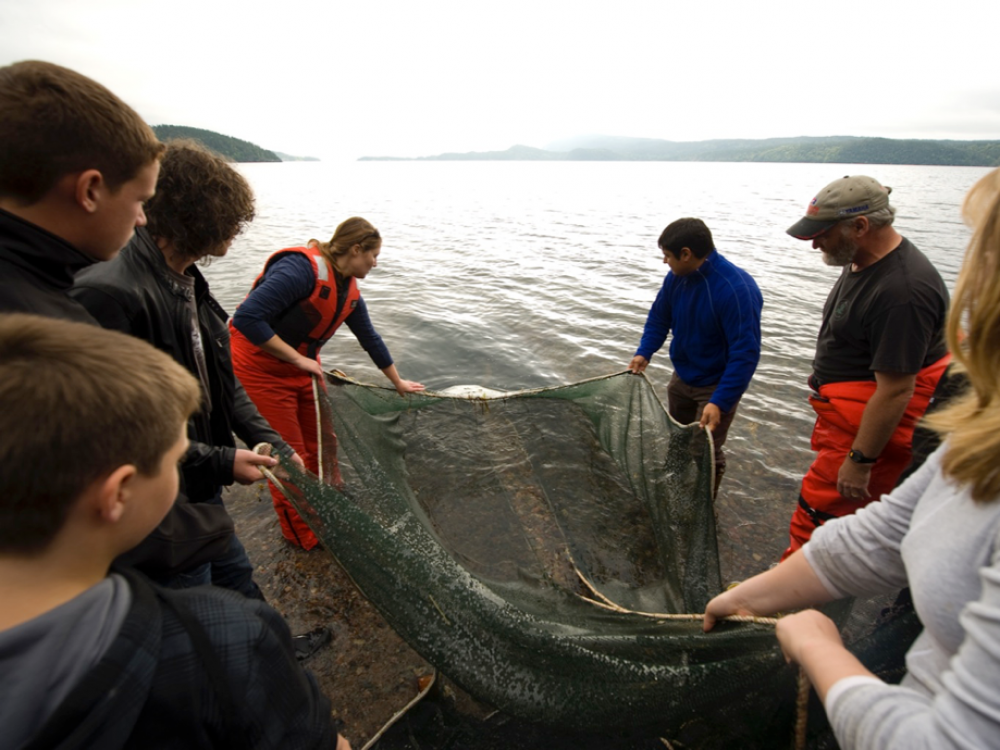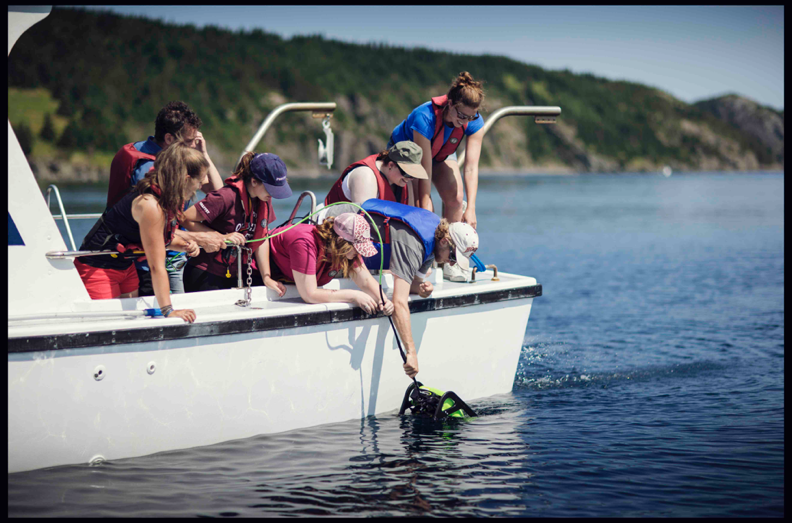ULIEA Winner Q&A: Coastal Explorers Field School
UL and the North American Association for Environmental Education (NAAEE) developed the UL Innovative Education Awards (ULIEA) in 2015 to honor programs in the United States and Canada leading the way in project-based learning, community citizenship and using the environment as a platform to STEM learning (E-STEM). In 2015 and each year since, we've awarded five organizations that create sustainable community solutions and provide innovative K-12 programming to solve real-world environmental issues.
The 2016 second-tier winner, Oceans Learning Partnership's Coastal Explorers Field School program, engages youth in local nature and ecological issues via their floating classroom. Here's their story:
Coastal Explorers Field School, 2016 Tier Two Winner
ULIEA: Tell us about your organization
The Oceans Learning Partnership (OLP) is dedicated to increasing Newfoundland and Labrador youth awareness, knowledge and engagement in the ocean. We work collaboratively with education, ocean science and industrial partners, as well as indigenous and government groups, to design and deliver hands-on experiential learning experiences. Whether the kids are learning how to deploy a plankton net, interacting with marine invertebrates in a touch tank or hiking along a coastal trail, we strive to ignite a feeling of curiosity and excitement for ocean science in Newfoundland and Labrador youth.
ULIEA: Tell us about your award-winning program
The Coastal Explorers Field School connects students to marine science by providing real-world, interactive experiences with the ocean. Students board an equipped inshore research vessel, or "floating classroom," to use the same tools and advanced methodologies ocean scientists use in their studies. Students carry out plankton tows and pilot a remotely operated vehicle (ROV), gather data on water temperature and water chemistry, and take photographs of underwater habitats. These activities allow students to explore the marine and coastal environment and contribute to real-world research with the help of their mentors: graduate student research scientists and working field professionals. Our program activities meet STEM-related K-12 curriculum outcomes, allowing students to relate what they learn in the classroom to experiences in the field.

ULIEA: Why did you include an environmental piece with the STEM initiative?
The North Atlantic Ocean is an integral part of the history, culture and economy in Newfoundland and Labrador. Youth in the province are currently growing up in a world where the ocean is physically at their doorstep but the skill and knowledge needed to truly appreciate the ocean environment often seems miles away. Connecting students to the ocean through projects that include tracking the spread of aquatic invasive species and monitoring the habitat of species at risk, alongside researchers from the Department of Fisheries and Oceans Canada and Memorial University of Newfoundland, we provide access to these missing pieces and foster a passion for the local marine environment.
ULIEA: How has your program been received by the community?
We work in partnership with local communities, scientists and stakeholders including scientists, teachers, school administrators and curriculum specialists across the province to ensure our programs meet the needs of educational communities. By collaborating closely with our partner organizations, we deliver ocean education programs to diverse audiences across the province at a network of field sites including Terra Nova National Park, the Ocean Sciences Centre and Bonne Bay Marine Station of Memorial University. We are currently working with community organizations to geographically expand educational programs to reach rural and aboriginal communities on the South Coast and West Coast of Newfoundland, as well as the Coast of Labrador. This partner-based approach has been key to the success of the Coastal Explorers Field School, ensuring that marine education programs contribute to real-world environmental monitoring.
In addition to our successful partnerships, we've seen a very positive reception from students and the local community. Teacher champions bring their classes back year after year, and encourage students to study marine science or related STEM and environmental fields. We take a lot of pride in the positive impact our programs have on local youth.
ULIEA: What is your program's biggest success? What do you hope to achieve?
Our greatest success is collaborating with program partners to deliver experiential learning programs that educate and inspire youth and contribute to marine research across Newfoundland and Labrador. The Coastal Explorers Field School 'floating classroom' creates an innovative learning experience not available anywhere else.
By participating in the Coastal Explorers Field School, youth are able to create connections between the local marine environment, cutting-edge technology and real-world research, and we hope these connections will excite and inspire the youth to pursue careers in the oceans sector.

How will the ULIEA grant money help your program?
The ULIEA grant has allowed us to expand our ocean education programs to reach rural and aboriginal youth in Newfoundland and Labrador including the Coast of Bays region, Corner Brook and Bay of Islands, Nain and other coastal Labrador communities. We are partnering with Miawpukek First Nation, MAMKA, the Newfoundland and Labrador Aquaculture Industry Association, Qualipu Miâkmaq First Nation and the Nunatsiavut government to bring innovative STEM-focused field experiences to remote coastal communities.
ULIEA: What does it mean to be a ULIEA Winner?
We are honored to be an ULIEA winner. ULIEA's commitment to STEM education, sustainable development and youth empowerment echo our vision for connecting students with the ocean. ULIEA brings expertise and enthusiasm to supporting the future development of innovative STEM programs, and we look forward to continuing our partnership.